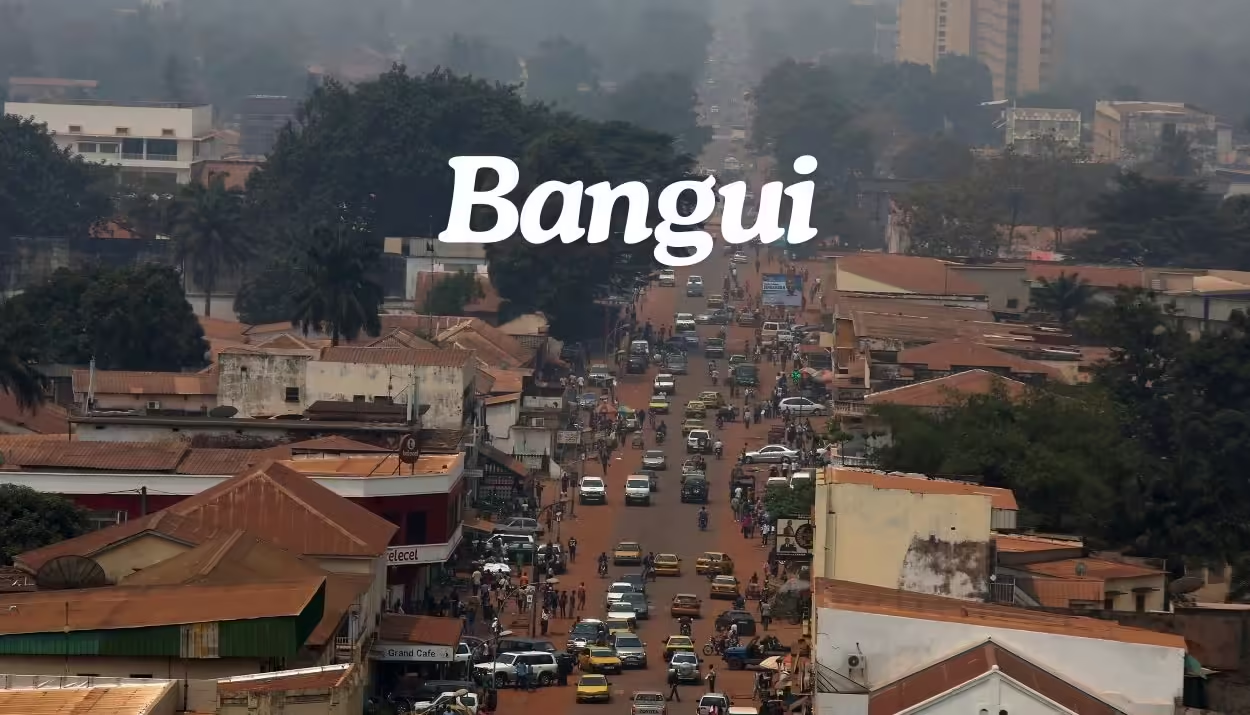Living in Africa is becoming increasingly expensive due to inflation surges and economic policies like taxation that are burdening Africans.
Additionally, many African currencies have experienced significant declines, with the Kenyan shilling, for example, trading at KES 160 to the dollar at one point this year.
These factors, along with the effects of the Ukraine-Russia war, have led to a steady rise in the cost of living, especially in urban areas.
Basic commodities like food and utilities have seen price hikes, driven by global market fluctuations and challenges in local agricultural and energy sectors
Here is a list of the most expensive African cities to live in in 2024 according to Mercer’s Cost of Living City Ranking 2024.
Contents
1. Bangui, Central Africa Republic
Bangui, the capital and largest city of the Central African Republic has the highest cost of living in Africa.
The city ranks 14th worldwide according to Mercer’s cost of living ranking. With a population of about 800,000, Bangui has seen a rise in inflation over the past few years.
As of April 2024, the Central African Republic’s inflation rate had increased to 1.4%, from 0.1% in March.
2. Djibouti, Djibouti
Djibouti ranks 18th in Mercer’s global index. The city’s inflation rate dropped to 3.7% in April from 4.9% in March. High unemployment rates and foreign-funded investments in infrastructure projects have led to increasing debt distress.
Reliance on food imports has also strained the budget and left the country vulnerable to price volatility.
“Poverty rates stand at some 70%, with over 40% of the population living in extreme poverty. Food insecurity associated with droughts and other local climatic shocks, coupled with disease outbreaks and water shortages, lead to regular humanitarian needs,” the European Commission noted.
3. N’Djamena, Chad
Despite Chad being one of the poorest countries in Africa, its capital N’Djamena is one of the most expensive cities to live in.
According to statistics, the average price per square meter of property in N’Djamena is around 174$ in the city centre and 124$ in the outskirts. Rental prices for a one-bedroom apartment in the city centre average 1172$ per month.
N’Djamena ranks 21st in Mercer’s global index. The city’s cost of living is higher than Washington DC, Vienna, and Beijing.
4. Conakry, Republic of Guinea
The cost of living in Guinea has been high, especially in its capital Conakry. Apart from housing, the price of commodities such as rice and cooking oil has also experienced a sharp increase.
This is a result of the junta increasing the cost of importing basic food items into the country. Conakry ranks 26th in Mercer’s global index. Conakry’s cost of living surpasses Atlanta, Seattle, Paris, Amsterdam and Berlin among many other developed cities.
5. Dakar, Senegal
The cost of living in Dakar is 22% above the national average. Dakar facilitates shipping to and from Europe. The city’s location and strong economy makes it a West African commercial hub. While this is good for the economy it has also driven up the cost of living in the city.
Purchasing a property in Dakar would cost about $2,460 per square meter and while this price might be lower than prices in New York City, it is 24% higher than the cost of most properties in South Africa.
Dakar ranks 39th in Mercer’s global index with its cost of living being higher than Helsinki, Dublin and Abu Dhabi.
6. Libreville, Gabon
Libreville’s economy is largely driven by oil production, which accounts for a large part of the city’s GDP.
Additionally, the city boasts many industries such as food processing, manufacturing, and transportation. It also has a bustling nightlife, vibrant markets, and stunning beaches.
Consequently, the city’s cost of living is relatively high compared to other cities. Buying an apartment in the city can go for $72,000 and cost upwards of $140,000 in upscale parts.
Renting ranges from $1500 to $6000 depending on the location and size of the residence. Libreville ranks 45th in Mercer’s cost of living index, surpassing Philadelphia, Tokyo and Dusseldorf.
7. Douala, Cameroon
Douala is an important business and industrial hub in Cameroon with a population of 4.2 million. The cost of a one-bedroom property is about $116,000, and a two-bedroom (85 sqm) would be around $165,000.
This can go from upwards of $350,000 in other areas of the city. Renting an apartment in Douala costs between $500 to $2500. Douala ranks 63rd in Mercers’ cost of living index.
8. Victoria, Seychelles
Victoria, the capital city of Seychelles is known for its stunning beaches, lush greenery and tropical climate. Victoria is the only port of the archipelago with deep water for large ships and is capable of accommodating several vessels. The town also boasts several modern amenities such as hospitals. This has made it a prime destination and economic hub.
The cost of living in Victoria is lower than in New York but still much higher than in several African cities. For instance, the average monthly rent for a one-bedroom apartment in the city centre is around $1,000.
The city is 64th in Mercer’s global cost of living index. The cost of living in Victoria is higher than in Glasgow, Barcelona and Rome.
9. Brazzaville, Congo
The prices of basic commodities and housing in Brazzaville are lower than most Western countries. The city ranks 74th in Mercer’s cost of living index.
Purchasing a property in Brazzaville would cost about $1,250 per square meter, according to the latest Central Bank of Congo data. This means a one-bedroom property spanning 60 square meters would cost about $75,000. Properties in high-end locations can go for up to $140,000.
10. Kinshasa, the Democratic Republic of Congo
Kinshasa comes in 79th in Mercer’s cost of living index. The city has a large population of more than 17 million people. Its most pressing issue is the high cost of housing.
Apartment prices can range from $500 to $4000. When it comes to buying property, the prices can go up to $3,800 per square meter.






